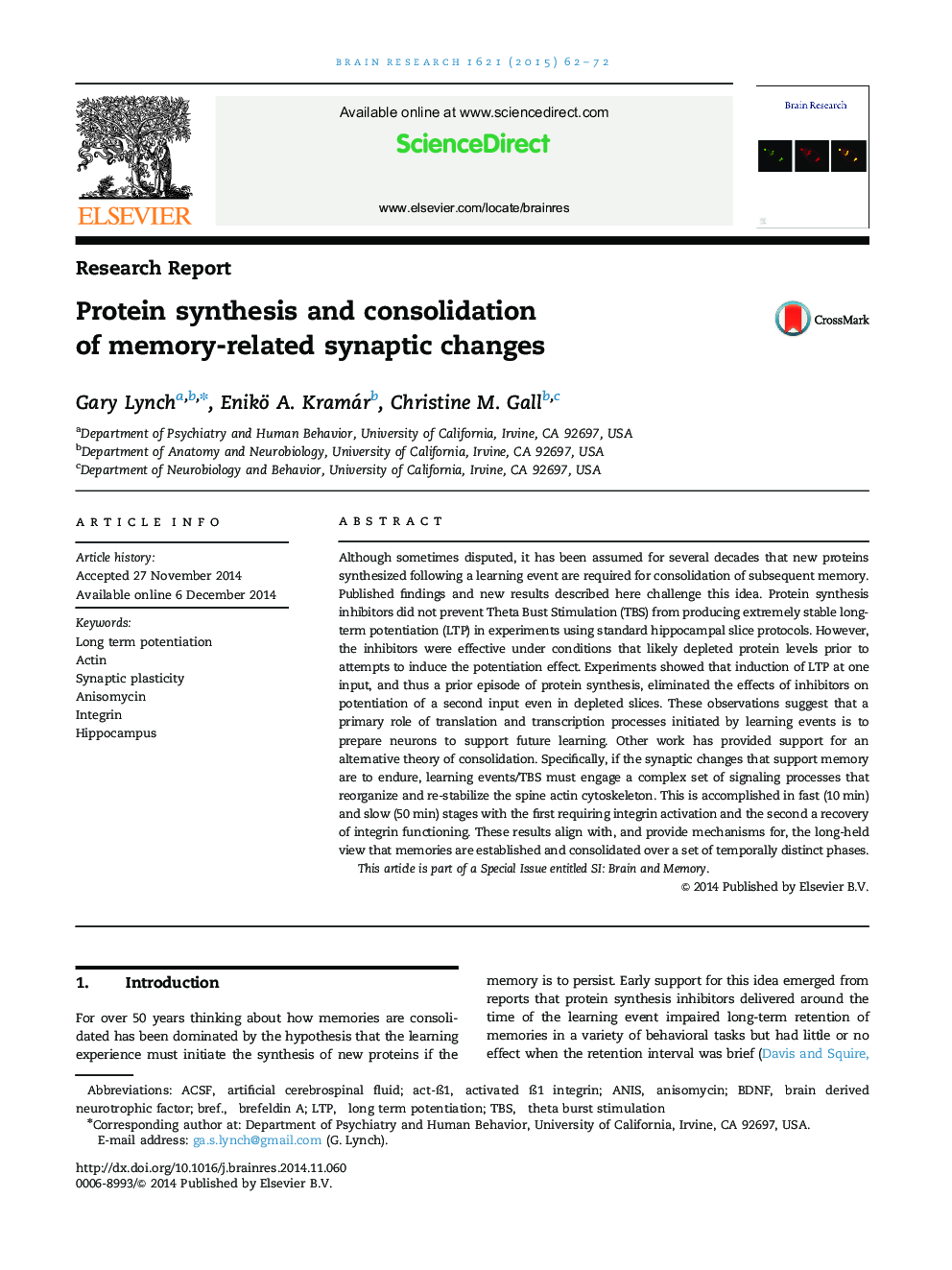| کد مقاله | کد نشریه | سال انتشار | مقاله انگلیسی | نسخه تمام متن |
|---|---|---|---|---|
| 6262710 | 1613818 | 2015 | 11 صفحه PDF | دانلود رایگان |
- Protein synthesis inhibitors prevent the consolidation of LTP in slices incubated for 6 h but not 2Â h before testing, quite probably due to the time-dependent depletion of plasticity related proteins.
- Signaling cascades that reorganize the dendritic spine actin cytoskeleton consolidate the synaptic changes that support LTP.
- Consolidation of changes to the spine cytoskeleton occurs in two stages and the second stage depends on a delayed recovery of synaptic integrin function.
- Consolidation of activity-induced cytoskeletal remodeling does not require new proteins.
- A primary contribution of proteins synthesized in response to synaptic activity is to prepare neurons for future learning.
Although sometimes disputed, it has been assumed for several decades that new proteins synthesized following a learning event are required for consolidation of subsequent memory. Published findings and new results described here challenge this idea. Protein synthesis inhibitors did not prevent Theta Bust Stimulation (TBS) from producing extremely stable long-term potentiation (LTP) in experiments using standard hippocampal slice protocols. However, the inhibitors were effective under conditions that likely depleted protein levels prior to attempts to induce the potentiation effect. Experiments showed that induction of LTP at one input, and thus a prior episode of protein synthesis, eliminated the effects of inhibitors on potentiation of a second input even in depleted slices. These observations suggest that a primary role of translation and transcription processes initiated by learning events is to prepare neurons to support future learning. Other work has provided support for an alternative theory of consolidation. Specifically, if the synaptic changes that support memory are to endure, learning events/TBS must engage a complex set of signaling processes that reorganize and re-stabilize the spine actin cytoskeleton. This is accomplished in fast (10Â min) and slow (50Â min) stages with the first requiring integrin activation and the second a recovery of integrin functioning. These results align with, and provide mechanisms for, the long-held view that memories are established and consolidated over a set of temporally distinct phases.This article is part of a Special Issue entitled SI: Brain and Memory.
Journal: Brain Research - Volume 1621, 24 September 2015, Pages 62-72
